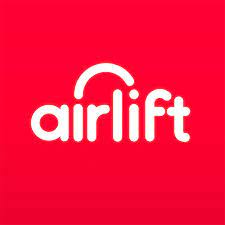In the midst of a global economic downturn, Airlift, a Lahore-based online shopping delivery service, has decided to “permanently” cease operations.
In a press release on Tuesday, the business made the decision public.
The statement said that although the recent downturn in the capital markets and the worldwide recession have affected economic activity generally, they have had a devastating effect on Airlift and made its closure inevitable.

“Airlift’s operations will end permanently on July 12. This decision, which affects a sizable number of stakeholders and an emerging technology ecosystem, has been very taxing “said the startup.
https://twitter.com/airlift_pk?ref_src=twsrc%5Etfw%7Ctwcamp%5Etweetembed%7Ctwterm%5E1546949129263370241%7Ctwgr%5E%7Ctwcon%5Es1_&ref_url=https%3A%2F%2Fwww.geo.tv%2Flatest%2F427262-airlift-decides-to-permanently-shut-down-operations-amid-global-recession
The statement claims that Airlift has established itself as one of the “resilient and agile startups” emerging from emerging markets. With the help of “pivoting into q-commerce and building scale in a new domain,” the company was able to get through the COVID-19 crisis.
The Pakistani startup obtained $85 million in Series B funding last year with the intention of going global.
Airlift Technologies was founded in Pakistan by local businesspeople for the local population, making it a pioneer in the current wave of technology companies.
In eight cities, including Lahore, Karachi, and Islamabad in Pakistan, Airlift was reportedly running a quick commerce service, according to a Techcrunch report.
Customers could use the Airlift website or mobile app to order groceries, fresh produce, other necessities like medicines, as well as sporting goods, and have the items delivered in 30 minutes.
reaction to the recession
According to Airlift, it was “one of the first few companies in emerging markets to restructure business operations” when the recession started.
Three modifications were made in response:
Revisions to platform configurations to ramp up monetisation, an immediate reduction in headcount, the suspension of operations in all expansion markets (i.e. introduction of higher prices and delivery fee).
According to the press release, “With the above adaptations, Airlift was able to achieve order-level profitability, maintain reasonable scale, and reduce financial burn by 66%.”
The handout states that as of July 2022, Airlift was between six and nine months away from company-level profitability and about three months away from operating profitability (i.e., positive cash flow from operations) (i.e. Free Cash Flow).
With the aforementioned developments in May, the business claimed that “one of our investors stepped up to lead Airlift’s Series C1 financing.”
The potential lead provided “tremendous support in opening doors to other investors to put together the round.”
According to Airlift, First Round Capital, Indus Valley Capital, Buckley Ventures, 20VC, and other investors all agreed to contribute significantly to the round.
Early in July, Airlift had a clear plan in place to complete the round; the company sent documents to all participating investors for signatures.
The press release continued, “This ultimately meant that the company’s capital requirements would not be met,” as several participants shared uncertainty in wire schedules and their disbursements last week amid rapidly deteriorating conditions in the global economy.
It continued, “In the end, the round was unsuccessful.”
In order to “ensure that all of its employees are sufficiently protected and catered for,” Airlift said it would “set up a platform for job placement, create support systems for aspiring entrepreneurs from within our team that may be interested in starting new ventures, and support teammates with two months’ payroll for July and August.”
In addition, “our team will communicate proactively to manage arrears and liabilities as a part of our ongoing shut-down process” with suppliers, vendors, and other third parties.


